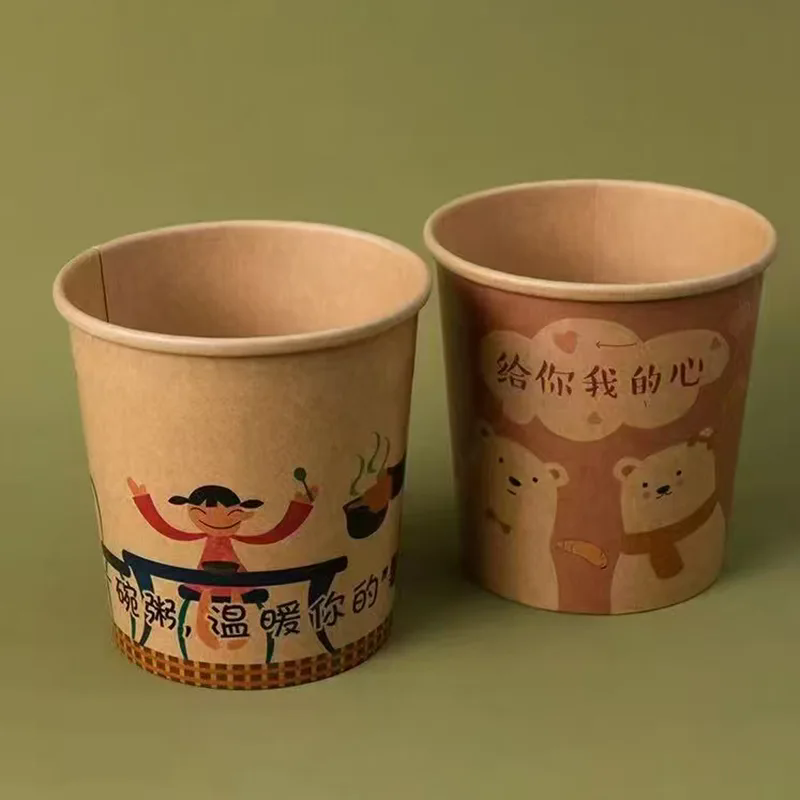What Makes Kraft Paper Series a Smart Choice for Modern Packaging Needs?
2025-11-17
The Kraft Paper Series refers to a complete range of paper-based packaging materials manufactured through chemical pulp processes that produce exceptionally strong, durable, and biodegradable paper. These materials have become a core component of sustainable packaging solutions due to their high tensile strength, natural fiber composition, recyclability, and versatility across retail, industrial, and food-grade applications. With increasing global emphasis on environmental responsibility, kraft paper has rapidly transitioned from a traditional wrapping material to an essential solution for ecommerce shipping, food packaging, protective cushioning, and premium branding.
Core Product Parameters of Kraft Paper Series
| Parameter Category | Specification Details |
|---|---|
| Basis Weight | 30–300 gsm depending on application |
| Tensile Strength | High dry strength; optional wet-strength grades available |
| Color Options | Natural brown, bleached white, dyed custom colors |
| Material Composition | 100% virgin pulp or mixed recycled pulp; customizable fiber blends |
| Coating & Treatments | PE coating, laminated film, anti-grease treatment, moisture-proof coating |
| Printing Compatibility | Flexographic, offset, gravure, water-based ink printing |
| Environmental Attributes | Fully recyclable, biodegradable, compostable depending on grade |
| Legal Compliance | Meets food-grade standards upon request |
These parameters demonstrate why kraft paper is preferred when balancing durability with eco-friendly performance. It meets the needs of industries requiring both strength and sustainability, making it an increasingly important choice in modern packaging.
Why Does the Kraft Paper Series Offer Superior Performance in Practical Packaging Applications?
Strength Rooted in Fiber Engineering
The durability of kraft paper comes from the kraft pulping process, which preserves long, strong cellulose fibers. This allows the material to resist tearing, stretching, and puncturing—qualities essential for shipping parcels, packaging hardware items, or wrapping delicate products needing impact resistance.
Versatility Across Industries
The Kraft Paper Series adapts to a wide range of applications, including:
-
Retail shopping bags
-
Ecommerce parcel mailers
-
Food wraps and bakery bags
-
Industrial sacks for cement or chemicals
-
Protective void-fill materials
-
Premium gift packaging
-
Labels and tags
-
Arts and crafting materials
Because kraft paper is customizable, it can be coated, laminated, printed, embossed, or processed into corrugated bases, giving businesses complete flexibility to create packaging aligned with brand identity.
Eco-Friendly Appeal in a Sustainability-Driven Market
Environmental awareness has transformed packaging expectations. Kraft paper provides the following advantages:
-
Biodegradable and recyclable, reducing landfill pressure
-
No toxic residue, making it suitable for eco-conscious brands
-
Compostable in natural conditions, depending on grade
-
Lower carbon footprint compared to plastic alternatives
These advantages help companies align with environmental policies, consumer expectations, and corporate social responsibility goals.
Cost Efficiency and Production Stability
Kraft paper production operates on mature, stable supply chains ensuring predictable pricing and availability. Its lightweight properties also reduce transportation costs compared to heavier packaging materials. Businesses benefit from operational savings without sacrificing structural integrity.
How Does Kraft Paper Series Function Across Packaging Scenarios and What Value Does It Deliver to Businesses?
Functional Strength Derived from Material Structure
The Kraft Paper Series performs effectively due to its fiber network arrangement, which enhances:
-
Tear strength under stress
-
Burst resistance during shipping
-
Moisture absorption when uncoated
-
Print clarity for branding applications
-
Heat resistance for food wraps
Whether used in thin sheets or heavy-duty grades, kraft paper provides mechanical stability under various environmental conditions.
How Kraft Paper Supports Food and Retail Applications
Food packaging demands hygiene, grease resistance, and regulatory compliance. The Kraft Paper Series offers:
-
Grease-proof treatment for bakery and fast-food applications
-
Natural brown paper for rustic brand presentation
-
Bleached white premium paper for high-end retail packaging
-
Food-safe materials meeting global standards
Retail brands favor kraft paper for its strong visual association with sustainability and natural aesthetics.
How Kraft Paper Improves Shipping and Ecommerce Logistics
Ecommerce requires durable, flexible, and customizable materials. Kraft paper contributes:
-
Sturdy mailer bags that withstand compression
-
Protective wrapping for fragile products
-
Void-fill options replacing plastic air pillows
-
Easy-to-print surfaces ideal for logos and instructions
Its lightweight nature reduces freight costs and enhances supply chain efficiency.
Value Delivered to Businesses
Businesses that adopt the Kraft Paper Series gain multiple competitive advantages:
-
Improved brand perception
-
Compliance with sustainability policies
-
Enhanced customer satisfaction through eco-friendly materials
-
Reduced breakage and return rates due to better protection
-
Cost efficiency through optimized packaging structures
These benefits make kraft paper a strategic choice for companies aiming for long-term packaging optimization.
What Future Trends Will Shape the Development of the Kraft Paper Series and How Should Businesses Prepare?
Trend 1: Rise of Eco-Oriented Consumer Behavior
As global markets continue shifting toward environmental responsibility, kraft paper is expected to expand further. Governments increasingly regulate plastic usage, promoting paper-based materials. Consumers also prefer brands that demonstrate sustainability, making kraft paper essential for future packaging strategies.
Trend 2: Advanced Coating Technologies
Innovations in coating will enhance kraft paper’s performance, including:
-
Improved moisture resistance
-
Better grease-proof properties
-
Enhanced heat sealing performance
-
Stronger barrier layers for perishable food
These developments aim to replace multilayer plastics in sensitive packaging categories.
Trend 3: Stronger Integration with Smart Packaging
Although kraft paper is naturally traditional, it is being integrated with modern features such as:
-
QR code printing
-
Track-and-trace systems
-
Anti-counterfeit markings
This combination of natural materials and digital functionality supports evolving ecommerce demands.
Trend 4: Lightweight Yet Strong Engineering
Future kraft paper grades will focus on reducing basis weight while maintaining strength. This supports:
-
Lower transportation impact
-
Reduced material usage
-
Optimized cost performance
These lightweight advancements will help brands meet sustainability expectations without compromising protection.
Common FAQs About Kraft Paper Series
Q1: What kinds of products are best suited for the Kraft Paper Series?
A1: The Kraft Paper Series is suitable for a wide variety of applications including food packaging, retail shopping bags, ecommerce mailers, industrial sacks, void-fill materials, and branded gift packaging. Its adaptability stems from its strong fiber structure, customizable treatments, and compatibility with various printing technologies. Whether for high-strength industrial use or premium retail branding, kraft paper provides durability, aesthetic appeal, and environmental advantages.
Q2: How can businesses determine the right kraft paper grade for their packaging needs?
A2: Selecting the correct grade depends on factors such as required strength, product weight, moisture exposure, printing needs, and regulatory compliance. Lighter grades are ideal for wrapping, food bags, and labels, while heavier grades suit industrial sacks and heavy-duty mailers. Companies should compare basis weight, tensile strength, coating requirements, and sustainability certification to ensure the selected kraft paper aligns with performance and branding goals.
How Can Businesses Benefit from Choosing Kraft Paper Series Today?
The Kraft Paper Series delivers a combination of strength, sustainability, versatility, and cost-effectiveness that aligns with modern packaging requirements. Its ability to support retail, food, industrial, and ecommerce sectors makes it a universal choice in markets prioritizing durability and environmental responsibility. As future trends continue to push packaging innovation toward eco-friendly solutions, kraft paper remains one of the most reliable and forward-looking materials available.
Many businesses rely on trusted manufacturers to ensure consistent quality, reliable supply, and customized solutions. Brands such as Yangyi provide stable production capabilities and advanced kraft paper technologies that help companies meet both market demands and environmental expectations.
For customized kraft paper solutions, performance guidance, and bulk supply inquiries, Contact Us to discuss how the Kraft Paper Series can support your packaging strategy.



